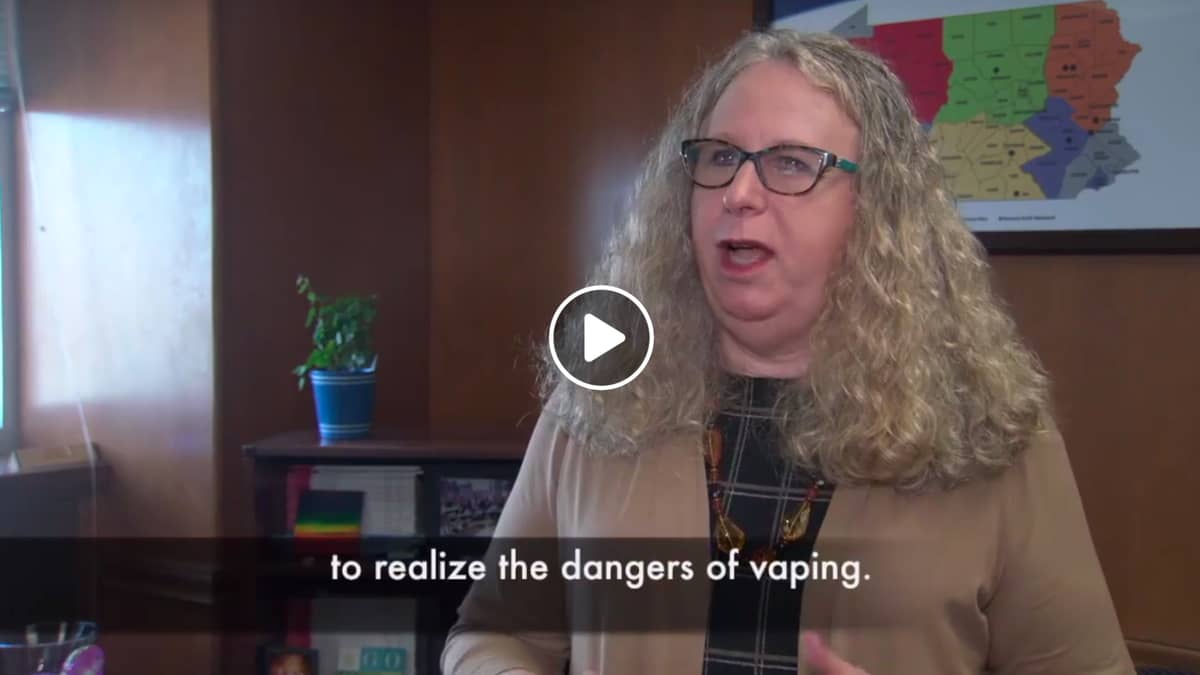Pennsylvania Physician General Dr. Rachel Levine took to Facebook last week with a new public health message on the dangers of vaping.
Although vaping is recognized as the CDC as beneficial when used as a complete substitute for regular cigarettes, Juul and other e-cigarettes have found a huge and (if you believe them) unintentional market in new-to-tobacco young people across the country. Youth vaping has previously been a focus of events held by the Community Health Council of Lebanon County.
For new users to tobacco, picking up a vape habit presents a number of drawbacks. While public health officials are measured in their comments on the actual adverse impacts from nicotine alone, nicotine is the compound that gives cigarettes and JUULS the dopamine buzz on which one can become dependent. And as with cigarettes, it’s not necessarily the nicotine that is bad for you, but the other stuff.
As Department of Health Press Secretary Nate Wardle explained in an email, the aerosols in vapes can contain a number of proven harmful and possibly harmful substances, such as propylene glycol, formaldehyde, nickel, tin, and diacetyl. While the science is still emerging, there is plenty of reasonable doubt regarding the longterm health impact of these substances.
“The long-term effects associated with these substances is not well-studied, or well-known,” explained Wardle.
For help trying to quit vapes or cigarettes, you can call 1-800-QUIT-NOW, a tool-free number operated by the National Cancer Institute that will connect you directly to PA’s tobbaco quitline.
Lebanon Family Health Services also holds an 8-week Freedom from Smoking Class that can even be brought to your place of employment. Participants also receive free nicotine replacement therapy vouchers for nicotine patches, gum, or lozenges as part of this program.























